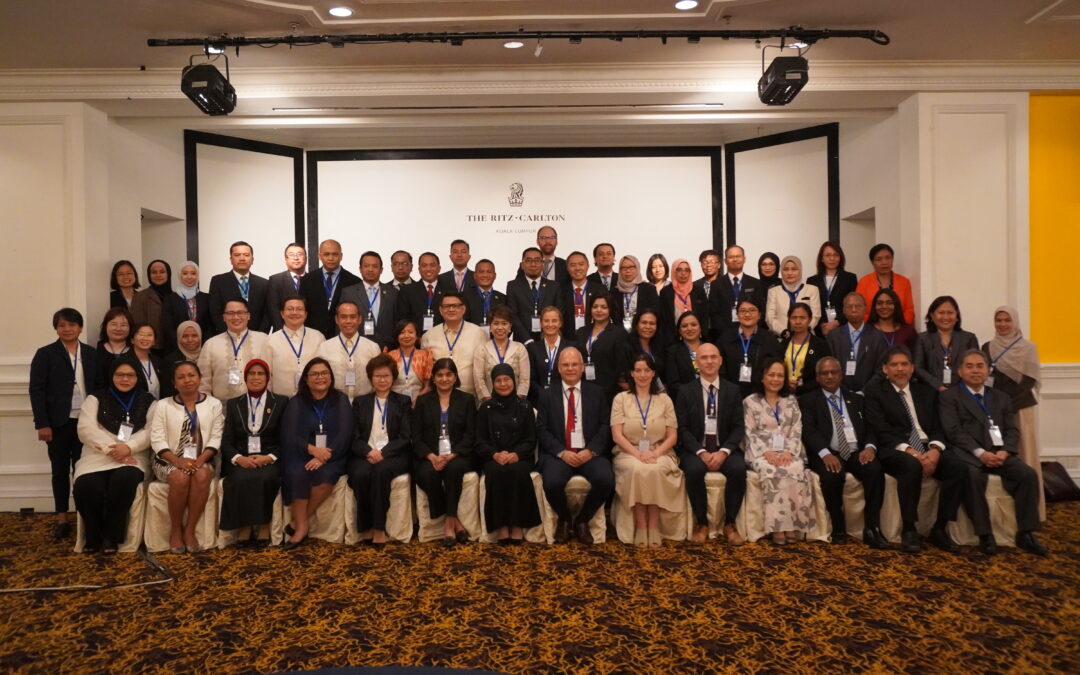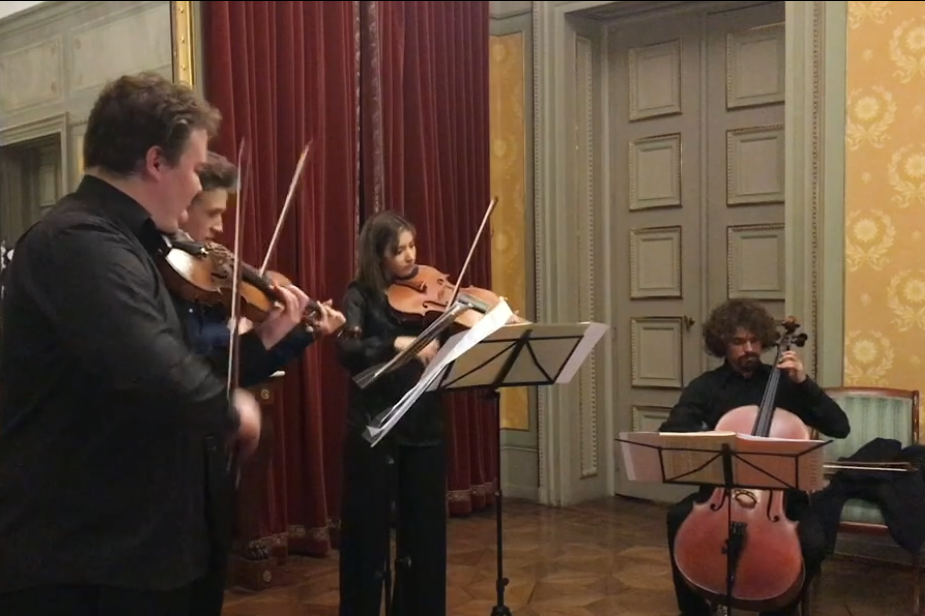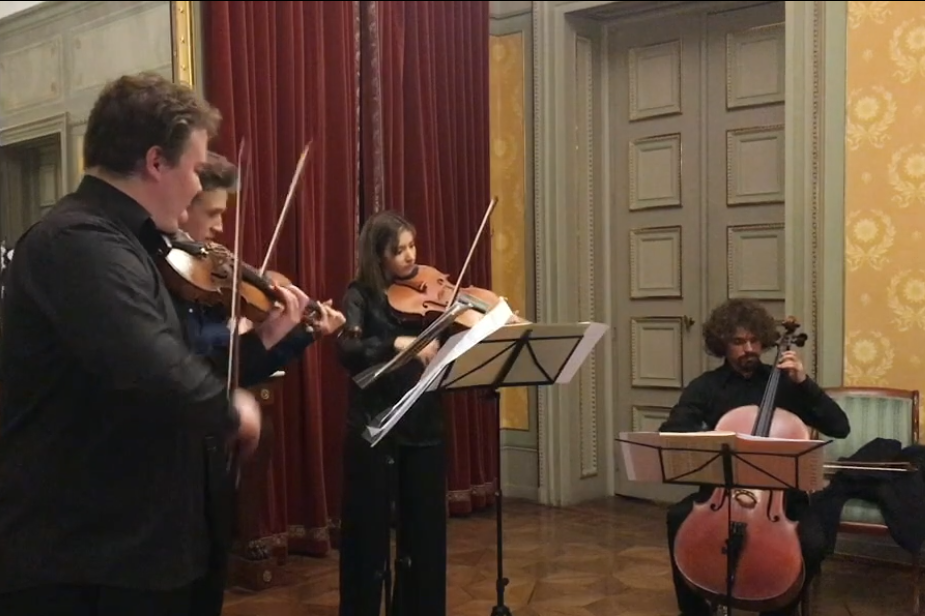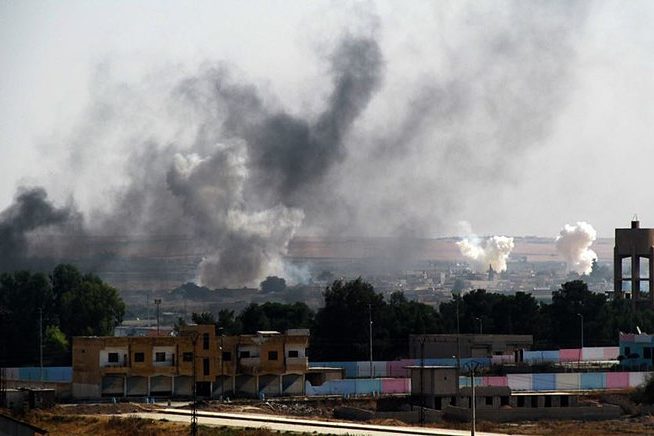
Oct 20, 2019 | Advocacy, News
From 18 and 19 October 2019, the ICJ, in collaboration with UN Women and the Federal Court of Malaysia, convened the 2019 Southeast Asia Regional Judicial Dialogue in Kuala Lumpur, Malaysia.
The judges from Malaysia, Philippines, Indonesia, and Timor-Leste discussed how to apply the Convention on the Elimination of All Forms of Discrimination against Women (CEDAW) and other international legal instruments in their work at the domestic level to eliminate the negative impact of stereotyping and gender bias in the judiciary.
“We need to ensure that CEDAW and international human rights obligations are fully applied by national authorities, and not just taken as aspiration or long-term goal,” said Frederick Rawski, ICJ Regional Director for Asia and the Pacific.
“These standards need to have the force of law and made real, in workplace and in domestic settings, to ensure that women are free from violence and that there is access to justice when violence does occur.”
The judicial dialogue was opened by Malaysia’s first female Chief Justice, The Right Honourable Tan Sri Tengku Maimun binti Tuan Mat. The Chief Justice emphasized during her keynote speech the need for regular capacity strengthening initiatives for judges to be aware of gender-related issues. She emphasized further that “Judicial stereotyping can undermine the ability of women to exercise and enforce other rights guaranteed by law.”
This message was echoed by Carla Silbert of UN Women who said: “We see that women are often impacted disproportionately and thus judges should uphold women’s rights as human rights. It is a crucial role for the court to deliver justice with gender sensitivity.”
ICJ Commissioner Dato Ambiga Sreenavasan and the Ambassador of Sweden to Malaysia, Dag Juhlin-Dannfelt addressed the ongoing reforms in Malaysia and gender equality.
“Malaysia has its first female Chief Justice and has shown a remarkable growth of female leaders in influential positions. However, the participation of women in the labor workforce is still very low and it remains a challenge for us,” said Dato Ambiga Sreenavasan, Commissioner of the ICJ.
“The drive for democracy is to support and strengthen gender equality and the rule of law,” said Ambassador Dag Juhlin-Dannfelt. “ICJ’s Bangkok General Guidance for Judges on Applying a Gender Perspective in Southeast Asia is an important tool to address gender equality in judiciary.”
The dialogue included discussion on the topics of equality & non-discrimination, access to justice under international human rights law, gender stereotyping and gender discriminatory practices in cases involving women who are victims of trafficking.
Many participating judges said that they would be applying in their judicial work the tools introduced to them in the dialogue, including the Bangkok General Guidance. These could be used in decision-making, assessing evidence presented before them, and handling witnesses in their courts. Some also said that they plan to disseminate the information and tools to their colleagues in the judiciary.
Contact
Boram Jang, International Legal Adviser, Asia & the Pacific Programme, e: boram.jang(a)icj.org
Resources:
To access pictures from the event, click here.

Oct 17, 2019 | Articles, Multimédia, Nouvelles
Le tout premier gala de soutien de l’ICJ s’est déroulé le 14 octobre dans l’enceinte du superbe Palais Eynard à Genève.
Après un accueil chaleureux de M. Sami Kanaan de la Ville de Genève, généreux sponsor de la soirée, soulignant l’importance de la coopération de l’ICJ avec la communauté juridique locale, la soirée a tenté de répondre au thème de celle-ci, devant un public nombreux: ‘ Genève, la défense de l’Etat de Droit: que puis-je faire? ‘.
Pierre de Preux, ancien bâtonnier, a pris la parole pour expliquer combien il était important de soutenir l’ICJ en participant à des missions communes, comme il l’avait fait lui-même en Tunisie dans les années 1980.
Il a été suivi par les commissaires de l’ICJ, Sir Nicolas Bratza (ancien président de la CEDH), Reed Brody (chasseur de dictateurs) et la juge Martine Comte (responsable des missions de la CIJ dans les anciennes républiques soviétiques d’Asie centrale), qui tous ont donné leur point de vue personnel sur leur contribution à la défense de l’Etat de Droit.
L’échange a été suivi d’un concert magnifique des virtuoses de l’Académie Menuhin et d’un délicieux cocktail dînatoire, préparé par des Chefs réfugiés Jena Hamza (Kurde syrienne) et Sritharan Tambithurai (Sri Lanka). Une merveilleuse soirée alliant substance, beauté et amitié et qui se répétera en 2020!
Voir la vidéo (en anglais, version française à venir):

Oct 16, 2019 | Multimedia items, News, Video clips
ICJ’s first ever fundraising gala took place on 14 October at the iconic setting of the Palais Eynard in Geneva.
Sami Kanaan, Counselor and former Mayor of the City of Geneva, which provided its generous support, opened the event by speaking of the importance of the ICJ cooperation with the local legal community.
Next, several speakers offered a few answers to the theme of the evening: ‘Geneva, the defense of the Rule of Law: what can I do?’.
Pierre de Preux, former Bâtonnier, explained the great value that can be brought to defending rule of law in the world by supporting the ICJ through missions, as he himself did in Tunisia in the 80s.
He was followed by ICJ Commissioners Sir Nicolas Bratza (former President of the European Court of Human Rights), who discussed backsliding on human rights in contemporary Europe; lawyer Reed Brody, who discussed his work in bringing powerful dictators to account for human rights atrocities; and Justice Martine Comte of France, who described her experience in leading ICJ missions in Central Asia.
The ICJ President Prof. Robert Goldman and ICJ Secretary General Sam Zarifi also addressed the attendees.
The exchange was then followed by an inspiring concert by the young virtuosi of the Menuhin Academy and a delicious Buffet cocktail provided by refugee Chefs Jena Hamza (Syrian Kurd) and Sritharan Tambithurai (Sri Lanka). All in all, a wonderful evening combining substance, beauty and friendship.
Watch the video here:

Oct 15, 2019 | News
Today, ICJ called on Turkey to comply with its obligations under the UN Charter, international humanitarian law and international human rights law, immediately end its military operations in Syria, and protect and ensure the protection of the Syrian civilian population.
The ICJ also reiterated its call on all parties to the Syrian conflict to respect and comply with international humanitarian law and international human rights law.
On October 9, Turkey initiated operation “Peace Spring” in Rojava, the Kurdish-led Syrian Democratic Forces (SDF)-held territory in north-east Syria, with the stated aim of securing Turkey’s border, “fighting terrorism” and facilitating the return of refugees to Syria. Turkey claimed to be acting pursuant to its right to self-defence under article 51 of the UN Charter, as well as UN Security Council resolutions on the fight against terrorism.
The ICJ recalled that none of these UN Security Council resolutions authorizes the use of armed force in violation of international law, and that the UN Charter prohibits the use of armed force by States, save when authorized by the UN Security Council or in self-defence.
Use of force in self-defence is lawful only when necessary to repel an armed attack and when proportionate to such attack. Military operations failing to abide by such requirements are in breach of the UN Charter.
“Turkey’s military operations violate the UN Charter and exemplify how the banalization of the illegal use of armed force continues to erode and dismantle the very fabric of the international legal order,” said Said Benarbia, the ICJ MENA Programme Director.
He added, “Instead of standing by while international law is being violated, the UN Security Council must take swift, appropriate measures to address the situation and to restore and maintain international peace and security.”
While UN Security Council member States have failed to find an agreement on even a statement on Turkey’s military operations in Syria, Turkish military operations continue to have a devastating impact on the general population, including multiple civilian casualties, attacks against civilian objects, including medical facilities and water supplies and infrastructure, and the displacement of more than 150,000 people, mainly civilians.
Turkish forces and the Turkish-backed armed groups have allegedly been responsible for violations of international humanitarian law and international human rights law. Members of one of these groups, the Ahrar Al-Sharqiya, have been accused of the extrajudicial execution of at least nine civilians, among whom is Kurdish politician and women’s rights activist Harvin Khalaf; torture and other ill-treatment; kidnapping; and looting and seizure of private property.
Turkey’s Defence Ministry said 595 “terrorists” were “neutralized” since the start of “Peace Spring.”
Under international humanitarian law, parties to an armed conflict must respect and protect the civilian population, and refrain from any direct, indiscriminate or disproportionate attack against civilians and civilian objects. International human rights law also continues to apply during the conflict.
“Turkish authorities must investigate and prosecute unlawful killings committed in the context of operation “Peace Spring,” including extrajudicial executions amounting to war crimes,” Benarbia said.
He added, “If no action is taken by these authorities, States must act, collectively and individually, to hold to account all those responsible for such crimes.”
Contact
Said Benarbia, Director of the ICJ Middle East and North Africa Programme, t: +41-22-979-3817; e: said.benarbia(a)icj.org
Syria-Turkey operations-News-Press releases-2019-ARA (Arabic version, in PDF)
Syria-Turkey operations-News-Press releases-2019-TUR (Turkish version, in PDF)

Oct 14, 2019 | Communiqués de presse, Multimédia, Nouvelles
La condamnation ce jour de dirigeants séparatistes catalans du chef de sédition restreint de façon indue le droit aux libertés d’expression, de réunion pacifique et d’association, déclare la CIJ.
« Ces condamnations représentent une atteinte grave à l’exercice des libertés d’expression, de réunion pacifique et d’association des dirigeants politiques. Le recours à la loi sur la sédition dans le but de restreindre l’exercice de ces droits n’était ni nécessaire, ni proportionné et, partant, injustifiable, » a déclaré Massimo Frigo, Conseiller juridique principal pour le programme Europe et Asie Centrale de la CIJ.
La CIJ souligne également le fait que la définition excessivement étendue du crime de sédition appliquée dans le cas présent crée un risque élevé d’arbitraire.
« Nous sommes inquiets de constater que la Cour Suprême ne respecte pas les obligations internationales de l’Espagne en matière des droits de l’homme dans l’examen des accusations visant les prévenus, ce qui affaiblit fortement les condamnations en découlant, » a-t-il ajouté.
Neuf des douze leaders politiques jugés – parmi lesquels des membres haut placés du gouvernement catalan – ont été déclarés coupables de sédition en lien avec leur participation à l’organisation, le 1er octobre 2017, du référendum sur la question de l’indépendance de la Catalogne. Le référendum fut conduit bien que la Cour Constitutionnelle ait prononcé son illégalité.
Le processus de vote référendaire a été interrompu de force à de multiples endroits par la police, laquelle aurait, selon plusieurs signalements sérieux, recouru de façon excessive à la force en violation des obligations internationales incombant à l’Espagne.
« L’ingérence dans l’expression pacifique de volontés politiques ou de manifestations est inacceptable, sauf dans de rares circonstances où elle s’avère strictement nécessaire et proportionnée pour des motifs impérieux tels que la sécurité nationale,» a précisé Massimo Frigo.
Contact
Massimo Frigo, Conseiller juridique principal, Programme Europe et Asie Centrale de la CIJ, t : + 41 22 979 38 05 ; e : massimo.frigo(a)icj.org
Contexte
Les 12 individus condamnés en lien avec le référendum d’octobre 2017 incluent Oriol Junqueras (photo), ancien vice-président catalan; Carme Forcadell, ancienne parlementaire catalane; huit ancient ministres du gouvernement catalan – Jordi Turull, Raül Romeva, Joaquim Forn, Santi Vila, Meritxel Borràs, Dolors Bassa, Josep Rull, Carles Mundó –; Jordi Sànchez, l’ancien dirigeant de l’Assemblée Nationale Catalane (ANC); et Jordi Cuixart, ancien dirigeant de l’organisation indépendantiste Òmnium Cultural.
L’Espagne a pour obligation de garantir la liberté d’expression, y compris l’expression politique, telle que protégée par l’article 10 de la Convention Européenne des droits de l’Homme (CEDH) et l’article 19 du Pacte international relatif aux droits civils et politiques de l’ONU (Pacte I) ; et la liberté de réunion pacifique et d’association protégée par l’article 11 CEDH et les articles 21 et 22 du Pacte I.
Le Comité des Droits de l’Homme de l’ONU, dans son Commentaire Général relatif à la liberté d’expression a déclaré : « les Etats parties doivent prendre les plus grandes précautions pour que toute législation relative à la trahison et toutes dispositions analogues relatives à la sécurité nationale, qu’elles se présentent sous la forme de lois sur les secrets d’État, de lois sur la sédition ou sous d’autres formes, soient conçues et appliquées d’une façon qui garantisse la compatibilité avec les conditions strictes énoncées au paragraphe 3 » de l’article 19 du Pacte I, lequel prévoit que les restrictions à la liberté d’expression doivent être fixées par la loi et nécessaires à la sauvegarde de la sécurité nationale ou de l’ordre public. Le droit de prendre part à la vie publique est protégé par l’article 25 du Pacte I.









